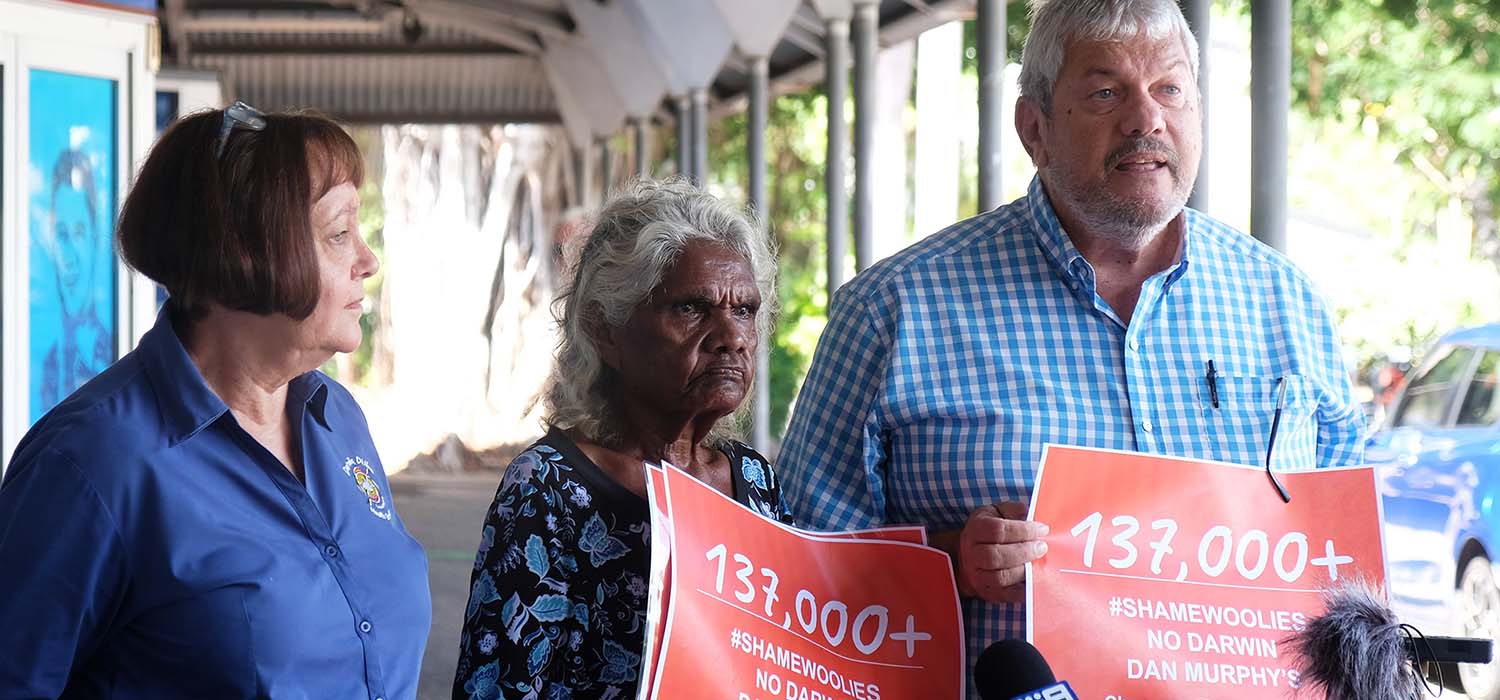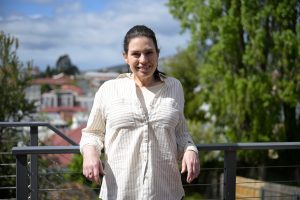Foreword: Late last year (2021), FARE together with Northern Territory Aboriginal and Torres Strait Islander, community and health organisations made a submission to an Inquiry about corporate engagement with First Nations people.
In this joint submission, we spoke about the varied and deep failures of engagement by Woolworths and its alcohol company Endeavour when attempting to build a Dan Murphy’s megastore in Darwin.
For almost five years, Woolworths relentlessly fought to build what would have been one of Australia’s largest liquor stores, an 1800-square-metre Dan Murphy’s, on the doorstep of Bagot community, a dry Aboriginal community.
The proposed development was met with sustained criticism and community opposition. A damning independent inquiry dubbed the Gilbert Review, which found Woolworths’ conduct when engaging with local communities to be “unconscionable”, was the final blow.
In April 2021, Woolworths Group finally abandoned the proposed development.
This week a public hearing was held in the Australian Parliament for the Inquiry into how the corporate sector establishes models of best practice to foster better engagement with Aboriginal and Torres Strait Islander consumers.
FARE appeared at the Inquiry, in a supporting role to Aboriginal leaders like John Paterson, CEO of the Aboriginal Medical Services Alliance NT from Aboriginal Community Controlled Health Services (AMSANT), and members of Danila Dilba Health Service and NTCOSS.
In a media statement released yesterday, Julian Leeser MP, Chair of the Committee holding the Inquiry, noted the important work undertaking by these organisations in preventing the Darwin Dan Murphy’s store.
“These organisations played a central role in preventing a Dan Murphy’s store from opening near dry communities in the Northern Territory. They have firsthand experience of poor corporate behaviour towards Aboriginal and Torres Strait Islander communities in relation to alcohol, health and other social issues.’
First Nations people require genuine self-determination and control over alcohol in their communities to prevent alcohol harm.
We welcome this Inquiry and implore Parliament to really listen. To hear what Aboriginal leaders are saying about their communities and to learn from the mistakes of Woolworths to ensure such conduct by large corporations will never be repeated.
Below is John Paterson’s powerful opening statement.
Opening statement
Inquiry into how the corporate sector establishes models of best practice to foster better engagement with Aboriginal and Torres Strait Islander consumers.
House of Representatives Standing Committee on Indigenous Affairs
Public hearing, 11.35am-12.20pm (AEDT) on Thursday, 17 February 2022.
Thank you for the opportunity to appear before this Inquiry.
My name is John Paterson and I am the CEO of the Aboriginal Medical Services Alliance NT, the peak body for Aboriginal Community Controlled Health Services in the Northern Territory. I am appearing here today alongside my colleagues at Danila Dilba Health Service, the Northern Territory Council of Social Service, and the Foundation for Alcohol Research and Education.
Our joint submission to this Inquiry highlights our experience of recent engagement with corporate giant Woolworths – and their alcohol business Endeavour Drinks – over several years in relation to their plans to build a Dan Murphy’s in Darwin. The plan to build an alcohol megastore near dry Aboriginal communities was eventually abandoned last year, after sustained community opposition.
For us, this took significant resources over a five year period. But this was important because alcohol causes far too much harm to Territorians. Alcohol attributable deaths are up to ten times higher for Aboriginal Territorians than the national average.
We don’t want any other community to go through this. And it did not need to happen the way it with the financial cost to Aboriginal organisations and the emotional burden borne by the Aboriginal leaders in Darwin.
We want the lessons from this to contribute to lasting change across Australia. This is why we are here today. To share our experience in the hope that the corporate sector can learn from its mistakes, and meet community expectations of meaningful engagement with communities and engagement with evidence. But we know that for every store that is not continued, there are several more that are. While the Dan Murphy’s did not progress in Darwin – this was not the case for a Woolworths liquor store in Nhulunbuy not far away, Lake Haven in New South Wales and Cranbourne in Victoria – despite strong community opposition.
For almost five years, Woolworths, and their subsidiary at the time, Endeavour Drinks, tried build a Dan Murphy’s in Darwin. From the outset, these corporate giants showed a total lack of respect for local Aboriginal communities and leaders in the Northern Territory. They also ignored and tried to dismiss strong public health evidence of likely harms.
They didn’t respect the concerns of the community, engaging with us late in the process when the application was already underway. They didn’t respect the decision of the NT Government’s Independent Liquor Commission which originally rejected their application. They didn’t care about the increased health and social harms that increased alcohol could bring, even though our community already experiences some of the highest levels of alcohol harm in Australia.
When the store was rejected by the NT Liquor Commission the first time, the final report of the Commission in 2019 said “It is most unfortunate that the Applicant did not engage in consulting the local community prior to committing to this site because it would, in our view, have come to the realisation that this was not an appropriate position for any liquor store, let alone one the size of Dan Murphy’s.” But even in reading this report, Woolworths and Endeavour did not listen and they did not learn from this.
It could have been different. It starts with engaging right from the start, asking us what our community wants and how the corporate sector can support that.
As our submission outlines, at the heart of meaningful engagement is a respect for the self-determination of Aboriginal and Torres Strait Islander peoples.
Meaningful engagement involves working with us every step of the way. It means actually listening to what we have to say and taking it on board, not just hearing it and noting it down. Real listening might even mean rethinking a proposal, changing the parameters, or the timing, or not proceeding at all. Real engagement involves responding to community concerns and evidence of harm in a constructive and open way – not ignoring issues until formal proceedings are underway then attempting to undermine or even exclude important evidence that supports community concerns.
To conclude, it is time for corporations to show that they have learnt the lessons from the past. We don’t want commitments, we want real action.
The United Nations Declaration on the Rights of Indigenous Peoples protects Indigenous culture and the right to self-determination. Australia has been a signatory to this UN Declaration for more than ten years, and yet situations such as ours have been able to occur. It shows scant regard for Australia’s obligations to such agreements and more importantly, scant regard for Aboriginal and Torres Strait Islander peoples.
Corporations must do better if we are to have any chance of building a better future for Aboriginal and Torres Strait Islander peoples. They must consider the health and social impact of the sale of their products – not just the profits and return to shareholders. And they must consider these impacts openly and genuinely, not ignore them only to use the adversarial process of formal applications and objections to attempt to deny the evidence. Thank you for considering our submission and we look forward to answering any questions you may have.







